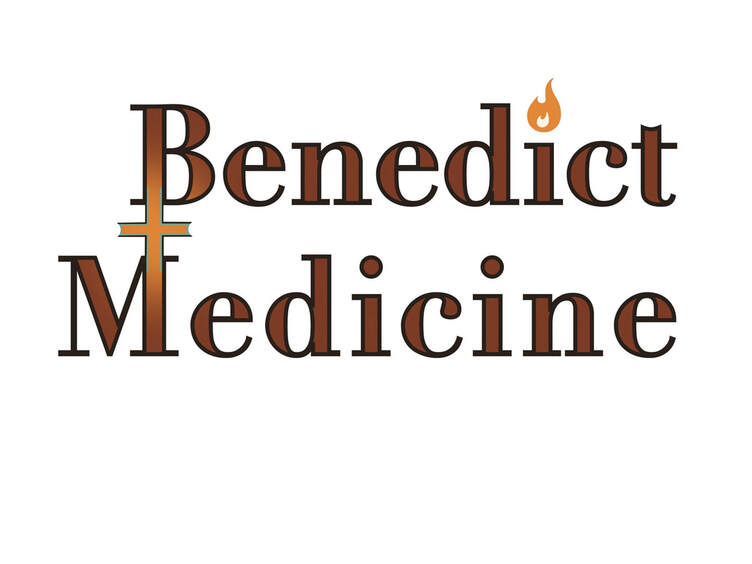|
One of the key elements of Catholic Social Teaching is the principle of Solidarity. What does this mean to us in practical terms? And how is this applicable to the way we consider healthcare? Does the principle of Solidarity have any relevance to how we, as Christians, seek out (and--for medical personnel--provide) medical care?
The concept of Solidarity in Christian teaching is based on the idea that we are all called to care for one another, as sisters and brothers living in society. Justice and charity demand that we all work together to secure the protection and well-being of other members of our community, with special attention for those who are vulnerable or marginalized. As Pope St. John Paul II defined it, Solidarity is “a firm and persevering determination to commit oneself to the common good; that is to say, to the good of all and of each individual, because we are all really responsible for all." (On Social Concern, No. 38) ‘Now that all sounds very good’, you might say, ‘but how does this concept apply to medical care in a society like the United States, where there exist public assistance and social welfare programs to care for the poor?’ It is true that our country has developed a sizeable social safety net to account for the healthcare needs of materially poor Americans. Over the decades, this safety net has expanded to include an ever-larger segment of the American populace. At their inception in 1965, the Medicare and Medicaid programs were intended to provide assistance to the elderly and to poor Americans in need of healthcare. Over the years, the number and percentage of the American populace enrolled in these programs has expanded; they are no longer reserved for a small segment of marginalized Americans. As of 2022, Medicare and Medicaid comprised 24% and 19% of all US healthcare expenditures—the second- and third highest-spending entities after private health insurance. The implementation of the Affordable Care Act (ACA) in 2010, and the relaxing of eligibility requirements and freeze on Medicaid disenrollments during the Covid-19 emergency, have served as inflection points that greatly expanded the numbers of Americans covered by these programs. Returning to the concept of Solidarity, it is important to remember that in its most authentic form, Christian solidarity is a matter of personal—not governmental—responsibility. Elected officials and bureaucrats may craft public assistance programs, but these do not substitute for the demonstration of true solidarity to our fellow men and women. On the contrary, one could argue that the encroachment of public payors (and commercial insurance payors) over the whole US healthcare system is one of the leading contributors to the unaffordability of basic services for ordinary Americans. This occurs when these government programs dictate payment schemes (ie, how much service providers will be paid for a given service), as well as the regulatory mechanisms that determine the conditions of payment. Because these processes (payment controls and regulatory oversight) are decoupled from the costs of providing services—and from the true need of the services by patients—the cost of healthcare tends to be inflated when the government plays a larger role in healthcare financing. Sadly, one of the factors that has led to US primary care being driven into the ground has been the very government programs that ostensibly provide “access” on the part of a larger segment of the American population. The increase in practice overhead needed to comply with the rules and regs—not to mention the payment amounts dictated by programs (in the case of many Medicaid plans, less than the cost of providing care)—has forced many independent primary care practices to sell out to larger health systems to survive. This in turn has worked to the detriment of working-class Americans who lack private insurance and do not qualify for public assistance. In essence, the position taken by advocates of an expansion of Medicaid and Medicare is one that forces more people to depend on government assistance for even the most basic medical services—such as primary care. In summary, government public assistance differs from the Christian notion of solidarity in three fundamental ways:
--James Breen, M.D.
1 Comment
Elaine
12/5/2023 12:40:55 pm
I totally agree that the government/insurance company (and I would add, the pharmaceutical companies) control of health care is totally opposed to a Catholic understanding of both the dignity of the human person and the principle of solidarity. When nuns and religious orders offered health care services as a part of their vocation and the Catholic Church also provided all kinds of social, mental, material, and spiritual services to everyone, especially the poor, the health of the population was so much better than it is today. In fact, Americans are sicker than ever even though more and more in spent on "health care" every year.
Reply
Your comment will be posted after it is approved.
Leave a Reply. |
AuthorThe thoughts and musings of a Catholic family physician regarding medicine, faith and culture. Archives
May 2024
Categories |

 RSS Feed
RSS Feed